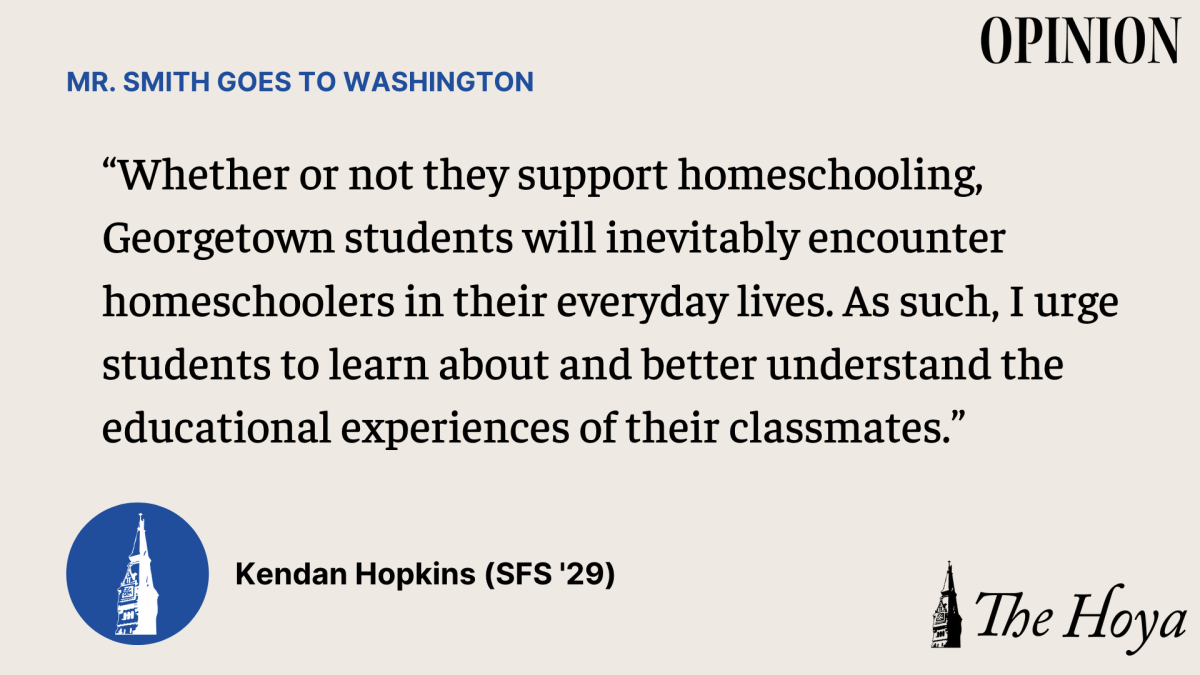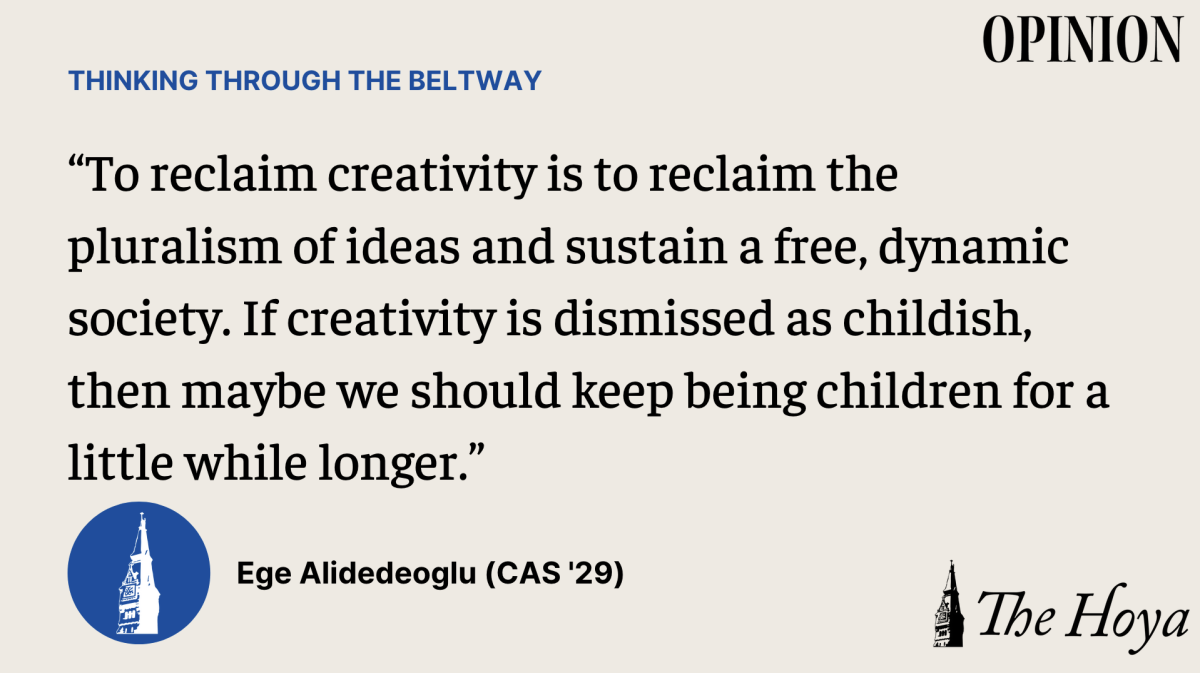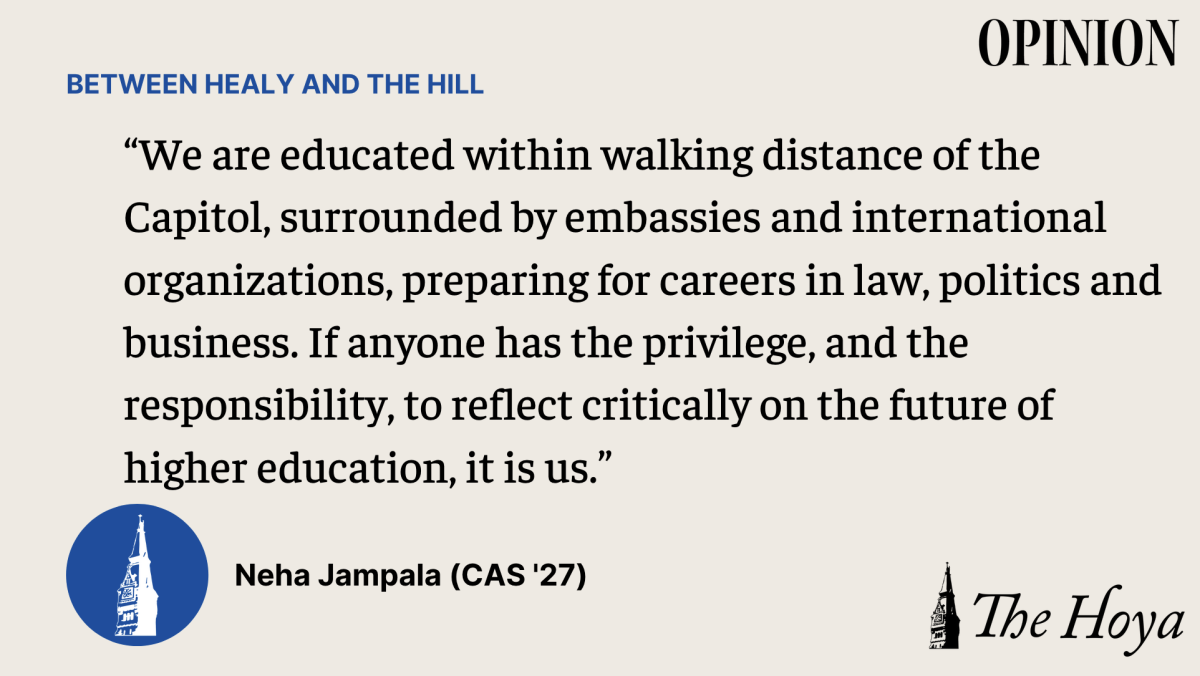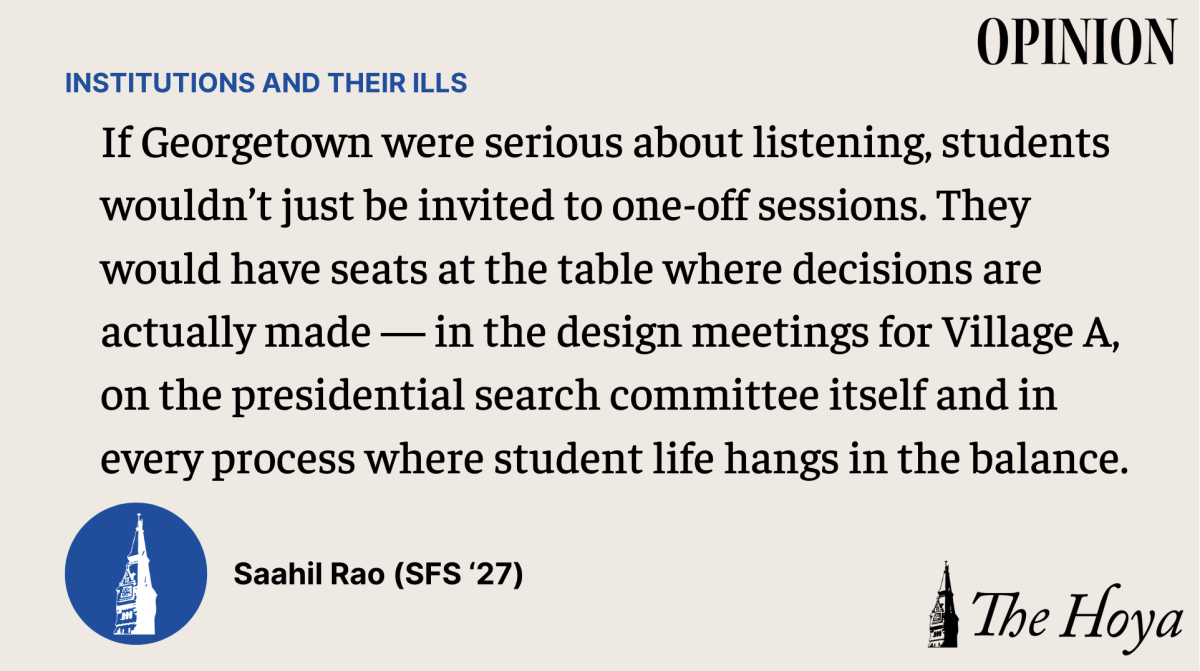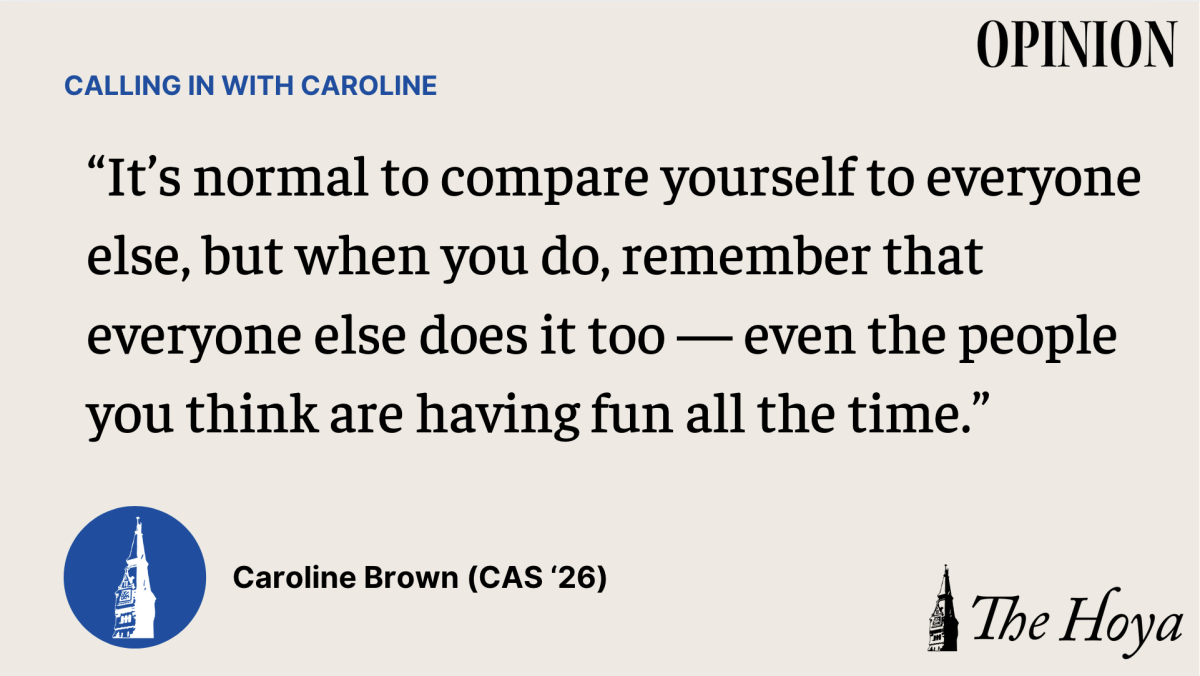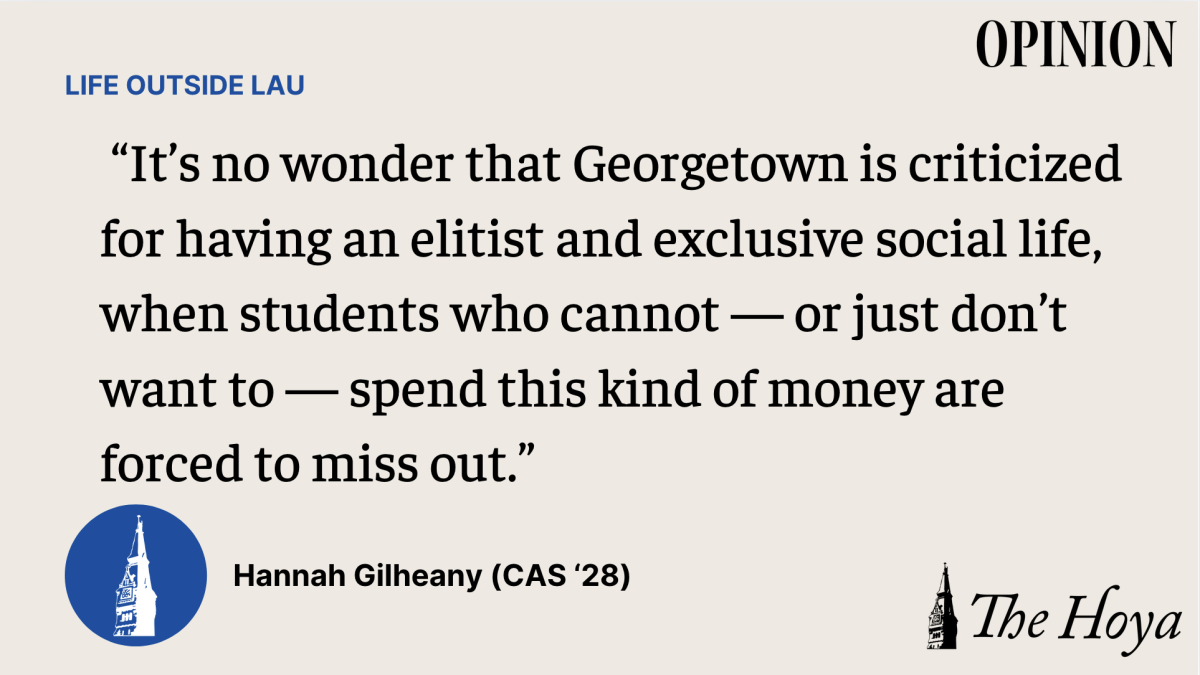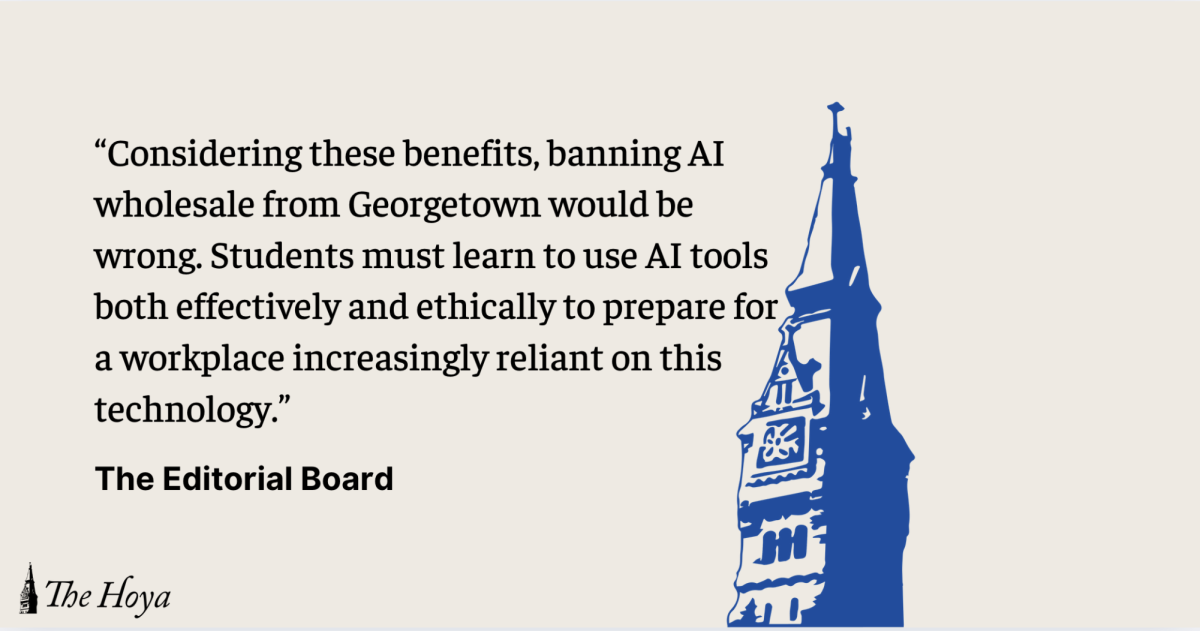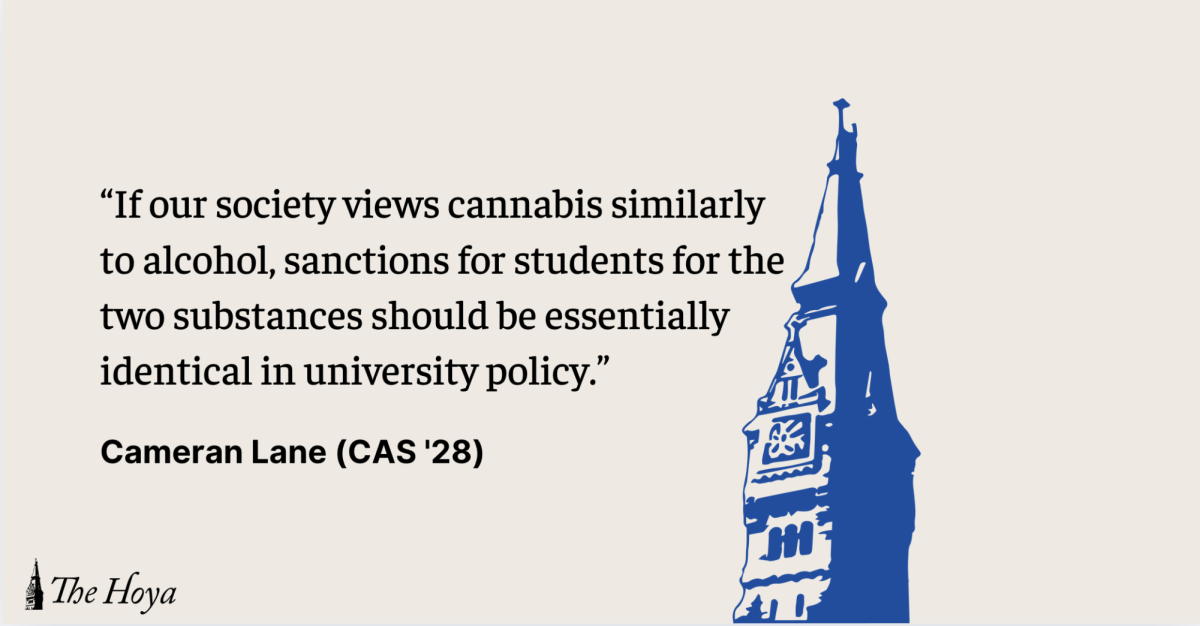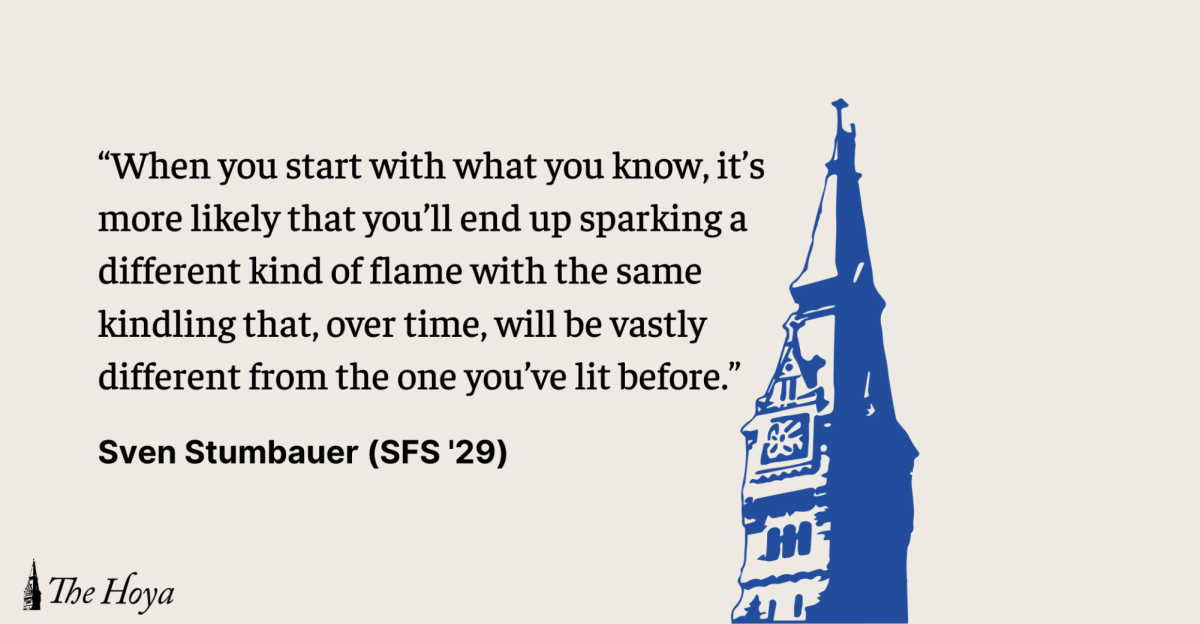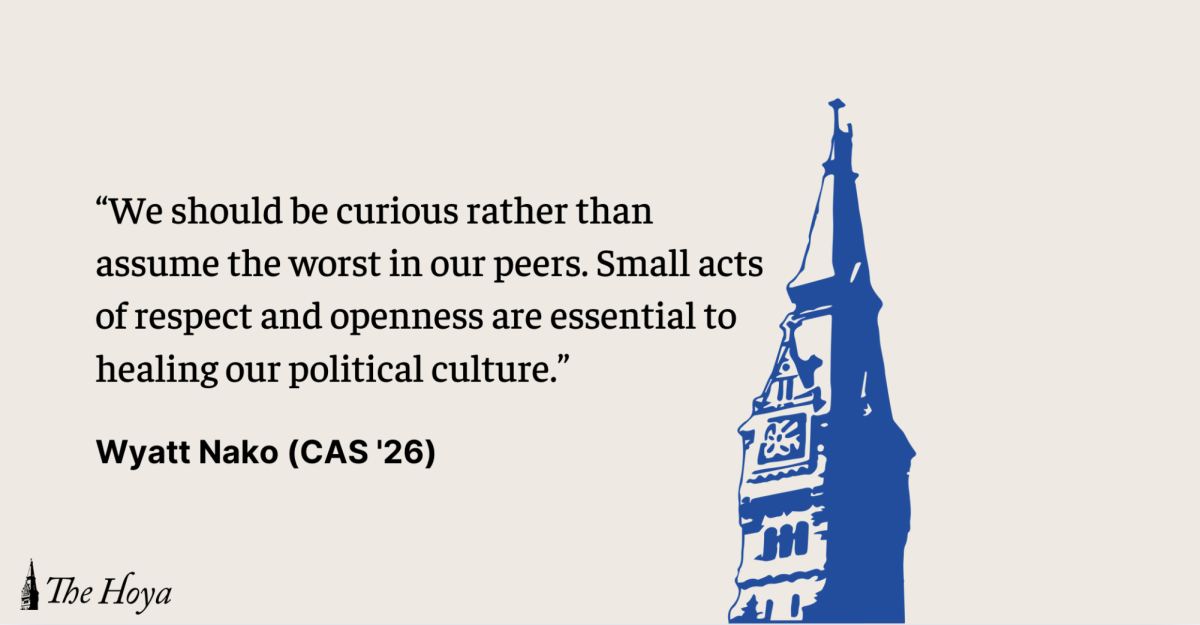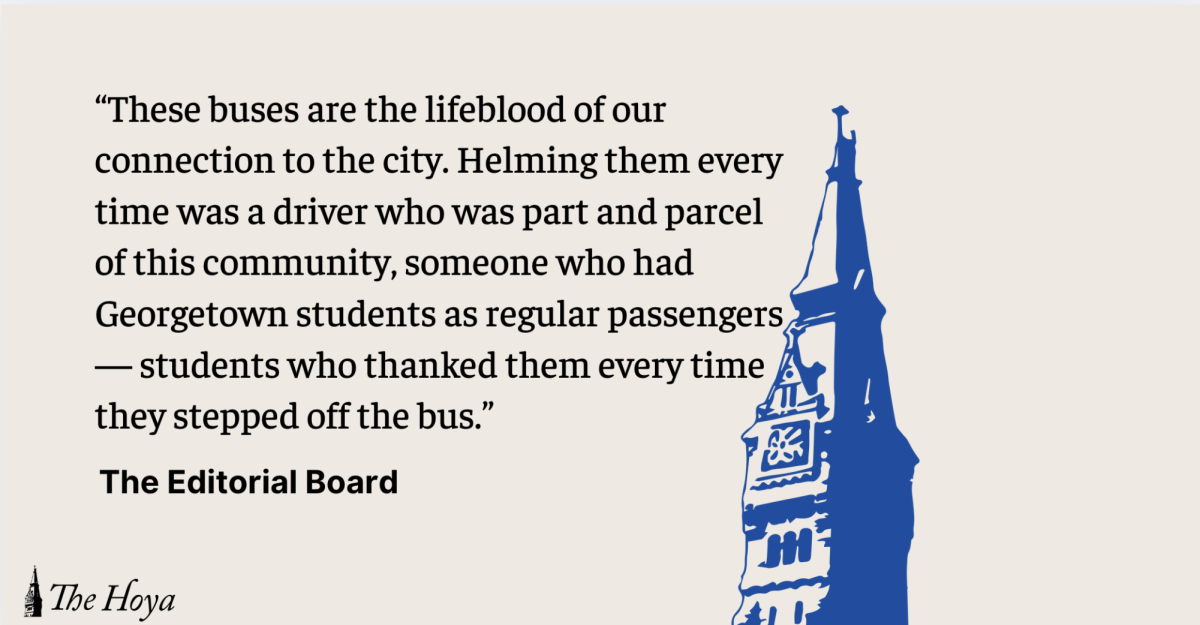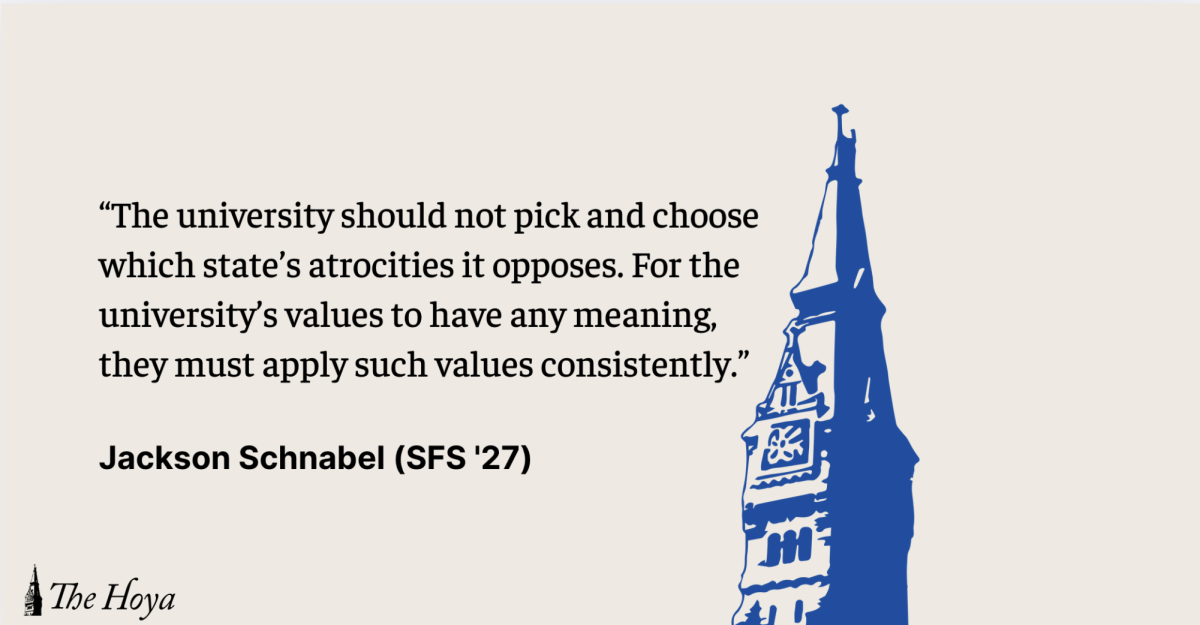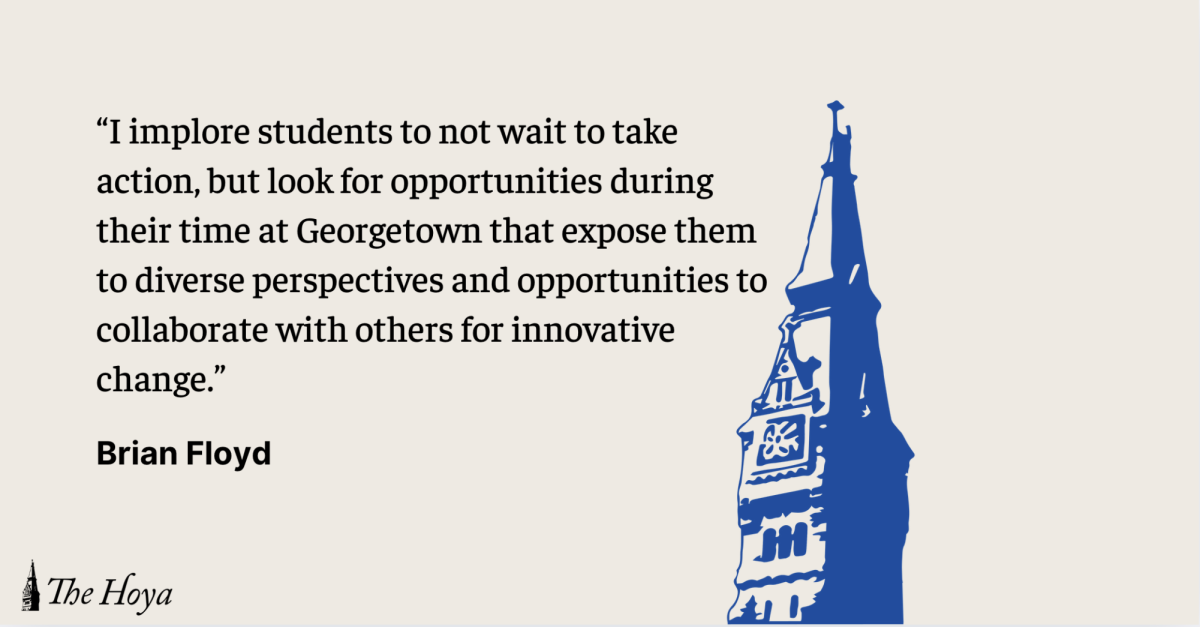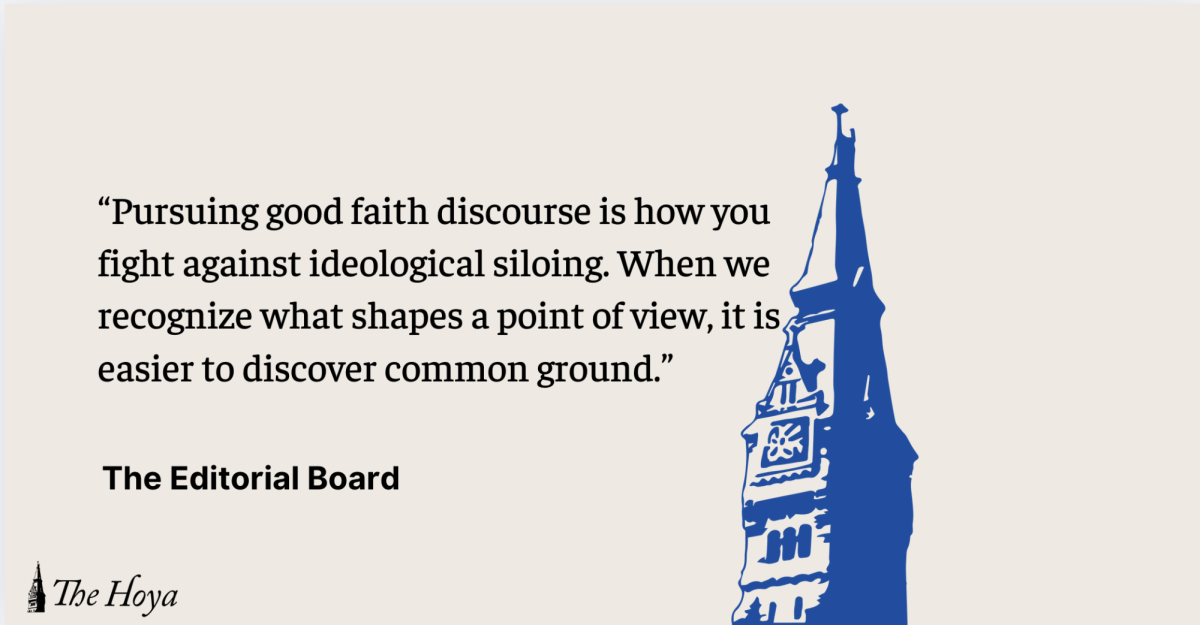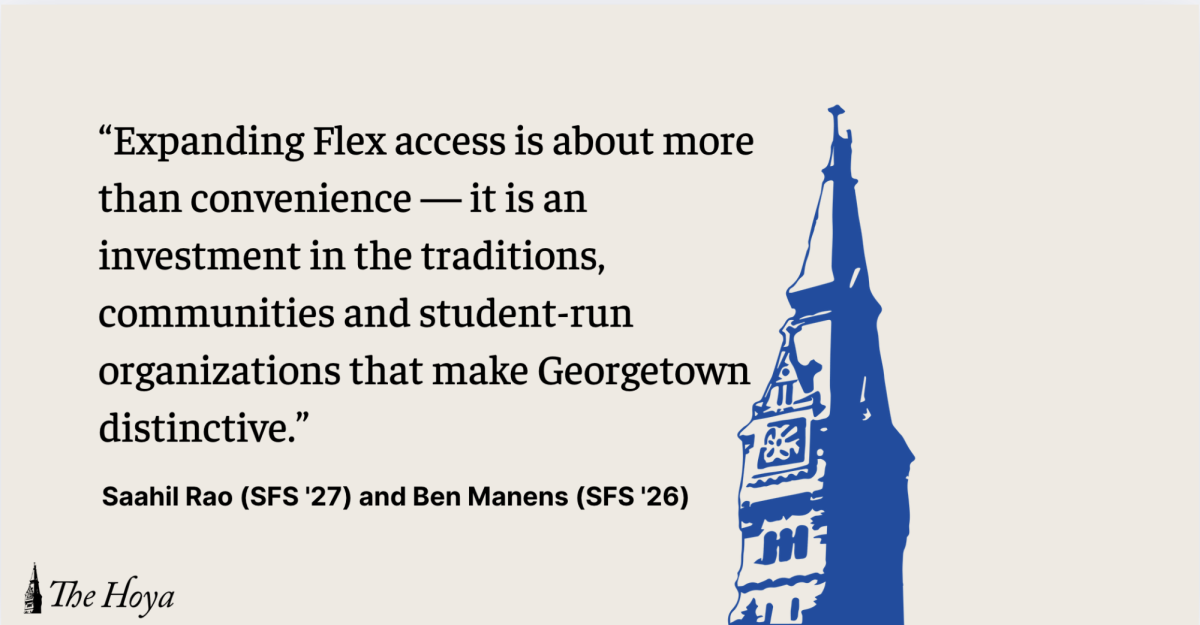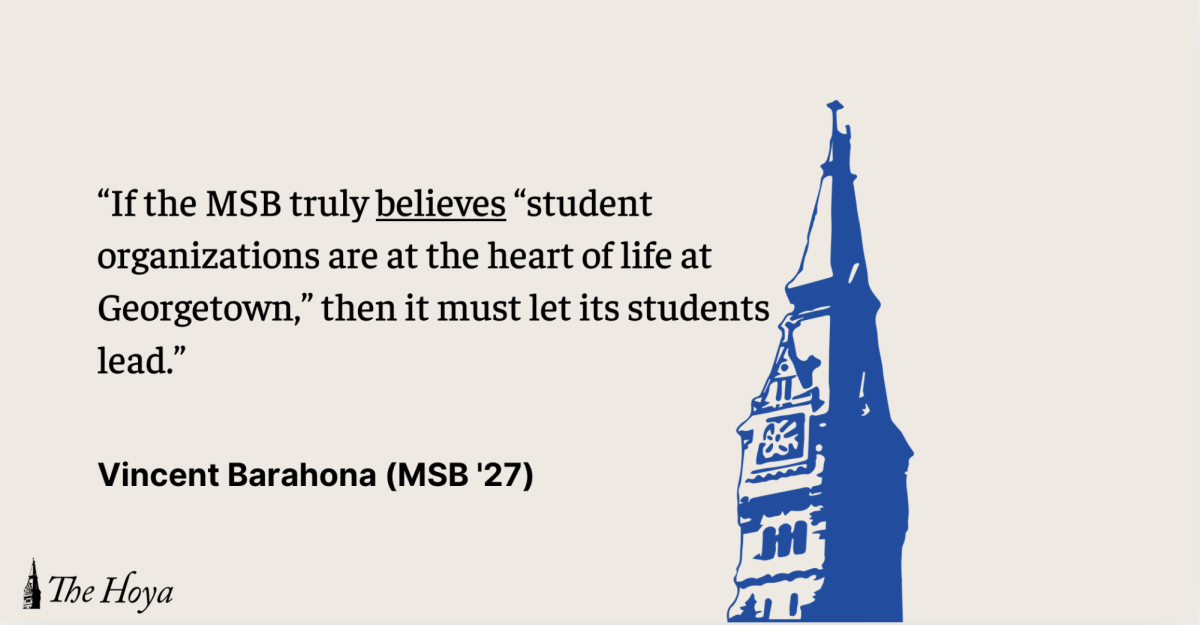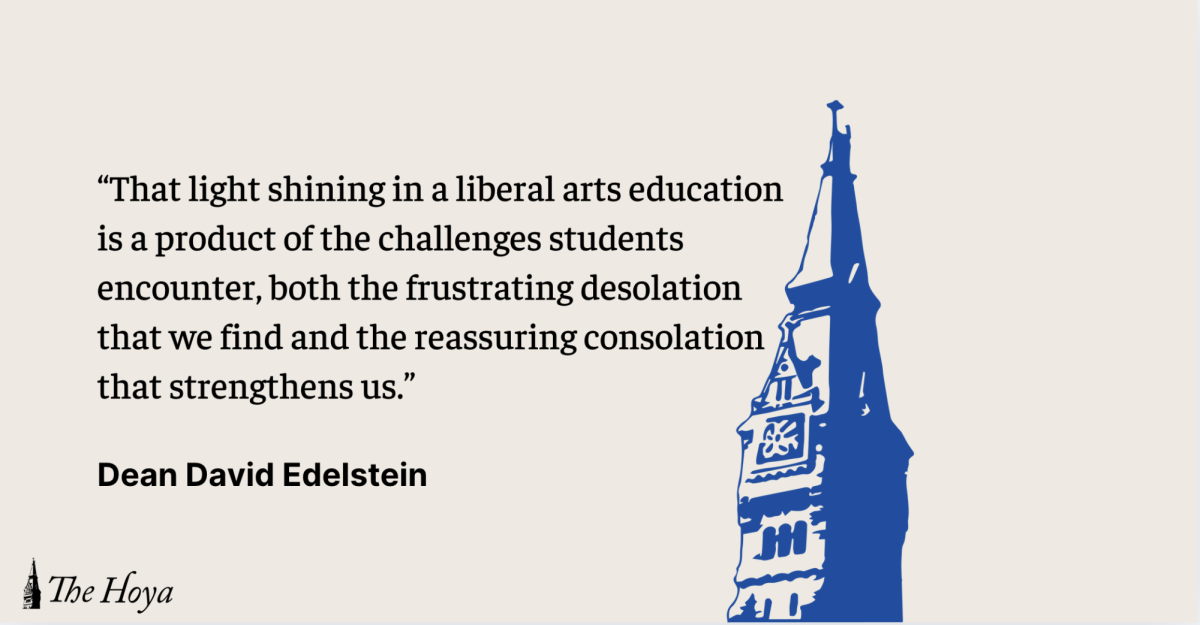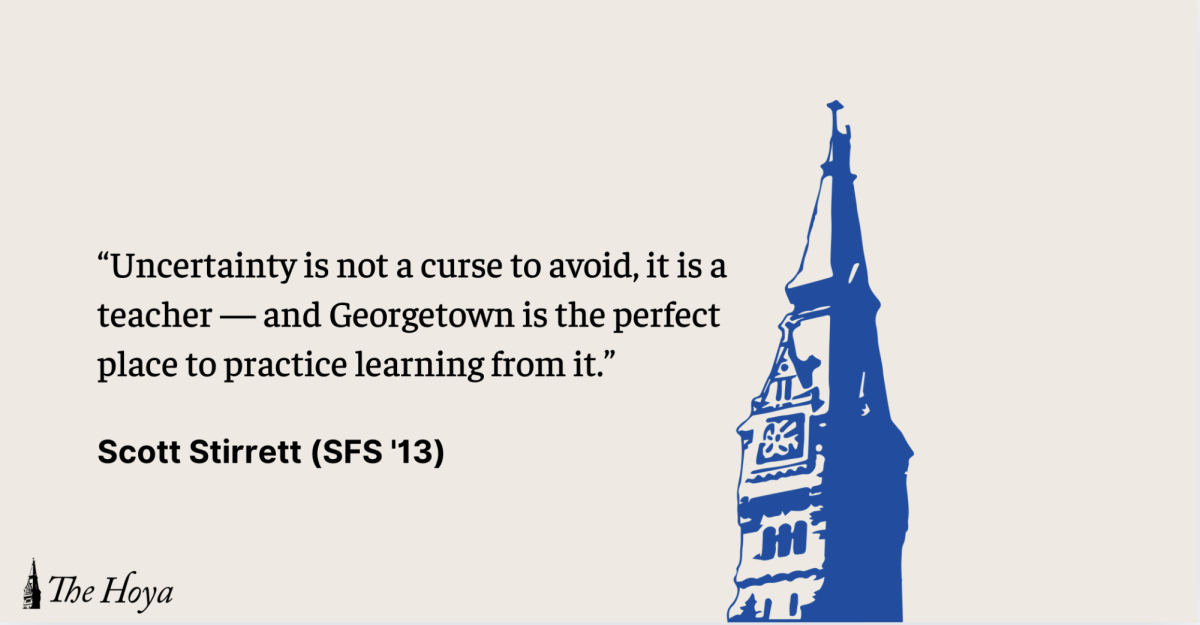At Georgetown University, students take pride in their rigorous participation in a wide range of clubs, whether they be political, pre-professional finance or business organizations, or social groups. These organizations play a central role in campus life, providing students with a space to discuss, organize and advocate for their beliefs.
While these clubs offer a sense of community and a platform for leadership, they also contribute to intellectual echo chambers. By surrounding themselves with like-minded individuals, students often reinforce their pre-existing views instead of challenging them, creating an environment where people rarely consider or even hear opposing perspectives.
This problem, while seemingly only an issue for political organizations, extends to nearly all groups on campus. Business and finance clubs often focus exclusively on career-building without considering the broader social or ethical implications of their fields. Even academic groups, such as debate societies or student journalism outlets, sometimes lean toward dominant narratives, subtly discouraging dissenting voices.
At Georgetown, a university that prides itself on global perspectives, this ideological siloing creates a paradox. Instead of cultivating a truly diverse and intellectually vibrant community, we risk fostering an environment where students engage with each other’s viewpoints only on a surface level. Students will talk about, but not truly interact with, new ideas or the people behind them due to preconceived notions and biases. This limits the depth of understanding and meaningful exchange that is essential for holistic growth.
The challenge, then, is to preserve the benefits of these organizations while encouraging intellectual cross-pollination. Some clubs have structured themselves to embrace new ideas that oppose those of the dominant narrative. For example, the Philodemic Society aims to bridge divides by encouraging structured debates across ideologies and collaborating with various clubs to discuss contested issues. Additionally, programs like the GU Politics Fellows bring professional, diverse voices to campus for students to engage with.
However, these initiatives remain the exception rather than the rule. If Georgetown truly seeks to foster intellectual diversity, it must move beyond the illusion of open debate and actively encourage students to engage with uncomfortable ideas — not just argue against them, but truly understand them.
Debate has always been central to Georgetown’s academic culture, whether in classrooms, student organizations or campus publications. Students are quick to challenge policies and argue their positions. But even these debates have faults. Too often, they become more about performance than authentic intellectual exchange; the focus shifts to crafting the perfect rebuttal, rather than engaging with the opposing argument.
Real conversations require a different approach. They involve putting aside your motives and agenda to instead listen with the intent to understand, ask questions out of curiosity and recognize the nuance in ideas that might initially seem foreign or threatening. When students push themselves to engage with ideas that challenge their worldviews, they not only sharpen their thinking but also gain a deeper understanding of the complexity of the issues they care about.
At Georgetown specifically, the student body, like other elite institutions, usually leans politically left. Especially being in Washington, D.C., a city that is extremely blue, conservative or contrarian viewpoints can feel sidelined. Political organizations, casual conversations and academic discussions on campus frequently reinforce dominant narratives rather than truly question them.
If the university is committed to intellectual diversity, it must create spaces where disagreement is not merely tolerated but actively encouraged. Students need to challenge each other without fear of social alienation.
Georgetown’s culture of engagement is one of its greatest strengths. However, the university must make this engagement meaningful rather than performative. Too often, students mistake agreement for understanding, surrounding themselves with people who reaffirm their beliefs instead of challenging them. A campus that values open debate cannot thrive if certain viewpoints are quietly sidelined, or if disagreement is seen as a personal attack rather than an opportunity for growth. If Georgetown wants to live up to its ideals of diversity and inquiry, it must foster environments where students not only defend their beliefs but interrogate them.
The challenge becomes for each of us to step outside our echo chambers. Attend a meeting of a political club from which you don’t align. Read sources that challenge your assumptions. Engage in real conversations, not just debates, with people who think differently. If Georgetown is to be a place of genuine intellectual engagement, it starts with us choosing to listen as much as we argue.
Aashi Bagaria is a first-year in the School of Foreign Service. This is the third installment of her column “Grey Matters.”



